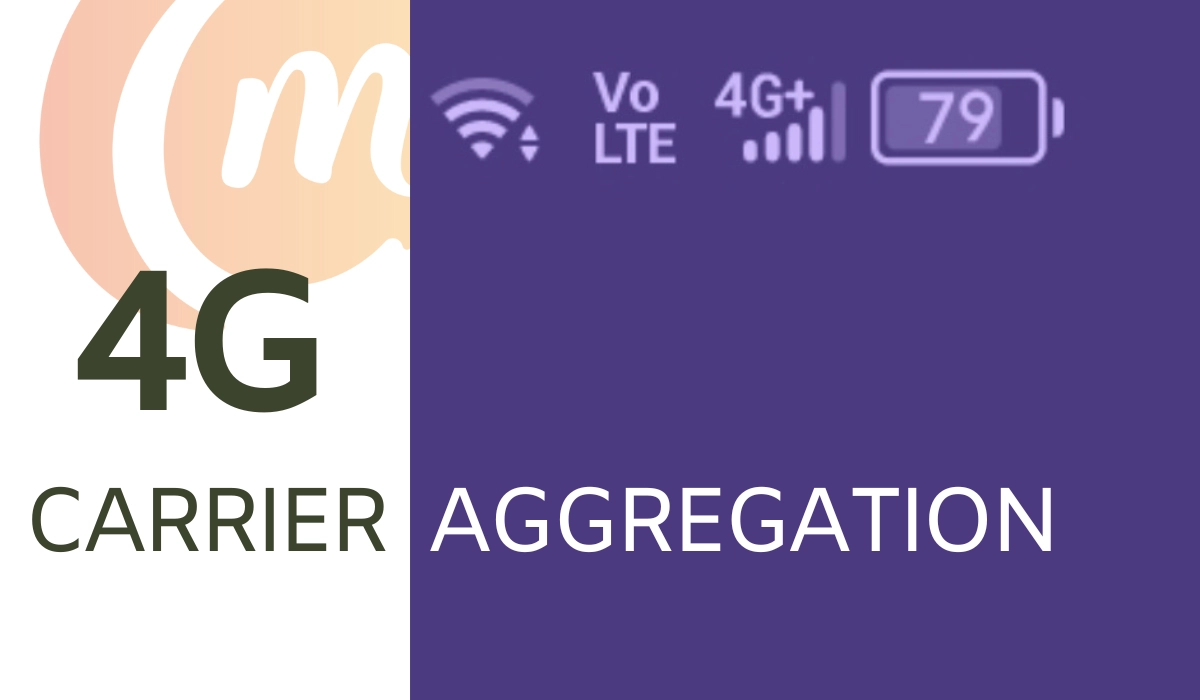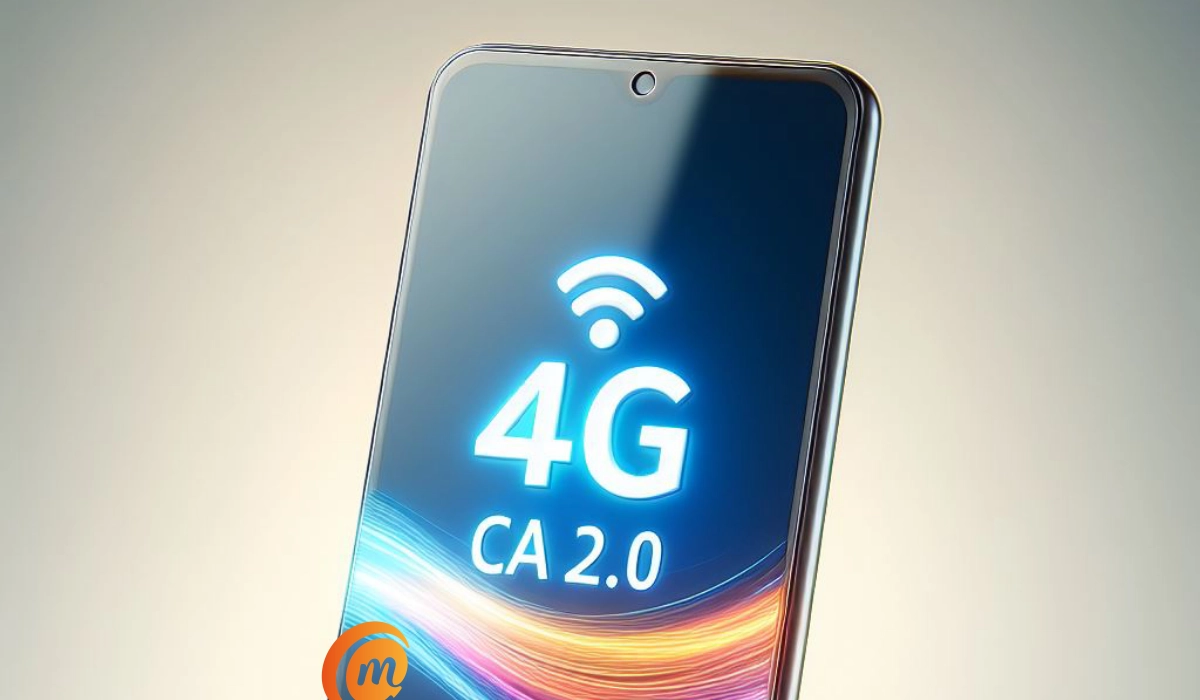Imagine driving on a highway that has only one lane. During peak periods, that road gets clogged up with vehicles lining up one after another, and eventually, traffic will slow down. I have experienced that quite a bit during interstate journeys around the country. 4G carrier aggregation is similar to adding more lanes to that highway: more vehicles can move at the same time, and at faster speeds.
I am sure the above explanation paints the picture well. The more the number of lanes you add to a highway, the greater the volume of vehicles it can move, and the faster those vehicles can move. 4G carrier aggregation is an LTE technology that improves both network capacity and speed.

Table of Contents
What is 4G Carrier Aggregation?
4G Carrier Aggregation is a feature of LTE Advanced networks and involves using multiple Internet connections between your smartphone and your wireless carrier to deliver faster speeds and improve robustness. Traditional 4G LTE ues a single connection between the user’s phone and the network, which was a limiting factor to how fast the Internet connection can get.
The main benefits of having carrier aggregation are:
- Faster Internet download and upload speeds
- Even during busy times, your Internet does not slow down as much
- Lower ping whilst gaming
- Reduced buffering during content playback.
As already mentioned before, if you can imagine how having a wider road with multiple lanes improves your commute, you already have a good grasp of how 4G carrier aggregation works and the benefits.
Downsides to using Carrier Aggregation
There is one possible disadvantage to using 4G CA. Because your smartphone is working harder to maintain multiple connections, this might result in faster battery drain.
How Carrier Aggregation works
For you to enjoy the benefits of 4G carrier aggregation, both your phone and your mobile carrier must support the technology. If your carrier has it and your phone does not support it, sorry. Also, if your phone supports it, but your wireless carrier does not, again, sorry.
What is 4G CA 2.0?

As the name indicates, 4G CA 2.0 is version 2.0 of carrier aggregation and delivers even more improved speeds and reliability. 4G CA 2.0 allows dual network channels to communicate simultaneously to maximize download speed. Even in weak or congested networks, it still delivers significant boosts.
Supported Phones
Popular smartphones in the US, UK, EU, and Australia that support 4G carrier aggregation include the Google Pixel phones, Samsung Galaxy S series, and a number of Motorola Moto phones, for example, the Moto G Stylus 5G (2022).
Outside of Western smartphone markets, phone rands like Xiaomi, Realme, and TECNO have phones that support 4G carrier aggregation. For example, the recently released TECNO Spark 20 Pro does.
How To Check Whether Your Phone Supports Carrier Aggregation
Here are two ways to check whether your device has support for 4G carrier aggregation.
1. Check your phones’s status bar
If your smartphone supports CA, it should display a “LTE-A” or “4G+” icon instead of simply LTE or 4G in the status bar.
2. Use the NetMonster app
The second method gives you more details, so if you love to tinker, you will prefer this option. It is by using a mobile app called NetMonster. This app, and others similar to it, will tell you all the necessary details about your network connection. Here is how to use it:
- Install the NetMonster app via the play store. You can install it directly by clicking this link.
- Accept all the permissions that the app asks for.
- Once done, the app will load and display supported network bands. If you see either a 4G+ or LTE-A symbol, your device supports Carrier Aggregation.
Supported U.S. Carriers
All the three big carriers in the United States support carrier aggregation. As such, whether you are on T-Mobile, AT&T, or Verizon, you will be able able to use the technology wherever it is supported on their coverage.
Supported UK Carriers
In the United Kingdom (UK), I am aware that Three UK and EE have implemented 4G carrier aggregation in their mobile networks.
Supported German Carriers
Deutsche Telecom, O2 Germany, and Vodacom Germany are some of the mobile network operators in Germany that support 4G carrier aggregation.
Supported Australian Carriers
Carriers in Australia that have implemented 4G CA to improve networks speeds include: Telstra, Optus, and Vodafone.
Of course, if using this feature is important to you, I recommend that you check with your carrier or mobile network operators in your country to confirm whether they have 4Gbcarrier aggregation.